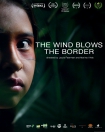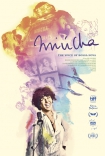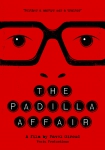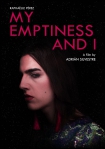PRAGDA is the leading educational film distributor for the newest Latin American, Spanish, and Latinx cinema. Our collection is relevant, curricular, diverse, and exclusive. Our films inspire, challenge, and entertain.
Our films are available with Public Performance Rights (PPR) and Digital Site Licenses (DSL) through PRAGDA.
We recently launched PRAGDA STREAM, the most comprehensive catalog of Latin American educational media content in the world, now featuring hundreds of new titles on subjects such as Human Rights, History, Environment, Global Economy, Indigenous Peoples, Gender, and many more. The platform is easy to use and facilitates the discovery of films and collections. The model offers subscription-based, collection, and individual licenses.
Since 2012, PRAGDA has run the SPANISH FILM CLUB grant program. Twice a year, with the support of the Ministry of Culture, Spain, SPANISH FILM CLUB offers matching grants to organize film festivals in educational settings worldwide. The goal? To bring students from all over the world closer to the most daring voices in Latin American Cinema through film festivals on campus!
MEET WITH US
To schedule an in-person or virtual meeting, please get in touch with Marta Sanchez at info@pragda.com or visit us at booth #A13.
FILM CATALOG HIGHLIGHTS
 | A Place Called Music | Un lugar llamado música (Mexico)
A captivating exploration of the unexpected bond between Philip Glass, one of the most influential composers of our time, and Daniel Medina, a traditional Wixárika violinist from the mountains of Jalisco, Mexico.
Author(s): Directed by Enrique M. Rizo
Book Webpage: Click here |
 | Luchadoras (Spain, Germany)
An intimate glimpse into the lives of three resilient female wrestlers in Ciudad Juárez, Mexico, who courageously challenge traditional gender norms in the face of pervasive machismo.
Author(s): Directed by Paola Calvo, Patrick Jasim
Book Webpage: Click here |
 | The Wind Blows the Border (Brazil)
On the violent border between Brazil and Paraguay, a battle between agribusiness and indigenous sovereignty wages.
Author(s): Directed by Laura Faerman, Marina Weis
Book Webpage: Click here |
 | Miúcha, The Voice of Bossa Nova | Miúcha, a voz da Bossa Nova (Brazil, France, USA)
Known as the sister of Chico Buarque, the pupil of Vinicius de Moraes, the second wife of João Gilberto, the musical partner of Antônio Carlos Jobim, and the vocal accompaniment to Stan Getz’s saxophone, Miúcha was overshadowed by the male musicians in her life. But her vibrant spirit couldn’t be held back. This is her story.
Author(s): Directed by Liliane Mutti, Daniela Zarvos
Book Webpage: Click here |
 | The Padilla Affair | El caso Padilla (Cuba, Spain)
Pavel Giroud's documentary, which brings to light images from the trial of Heberto Padilla, the Cuban poet who "self-confessed" as a counter-revolutionary, marking a turning point in the Cuban regime.
Author(s): Directed by Pavel Giroud
Book Webpage: Click here |
 | Home is Somewhere Else | Mi casa está en otra parte (Mexico, USA)
An exposition of the emotional experiences of immigrant children and families that invites discussion about the need for a new US migratory model based on respect for human rights for all.
Author(s): Directed by Carlos Hagerman, Jorge Villalobos
Book Webpage: Click here |
 | This Stolen Country of Mine | Nuestro país robado (Ecuador)
Recently assassinated journalist and presidential candidate Fernando Villavicencio, and the indigenous resistance exposed the Ecuadorian government's corrupt agreements that allow Chinese exploitation of local mines.
Author(s): Directed by Marc Weiss
Book Webpage: Click here |
 | My Emptiness and I | Mi vacío y yo (Spain)
A romantic and illuminating story of one woman’s transfeminine experience and an invigorating cinematic experience, destined to become a queer classic.
Author(s): Directed by Adrián Silvestre
Book Webpage: Click here |
 | Carajita (Argentina, Dominican Republic)
A psychological thriller on the tenuous relationship that exists between race, class, and family in the Dominican Republic.
Author(s): Directed by Silvina Schnicer, Ulises Porra
Book Webpage: Click here |